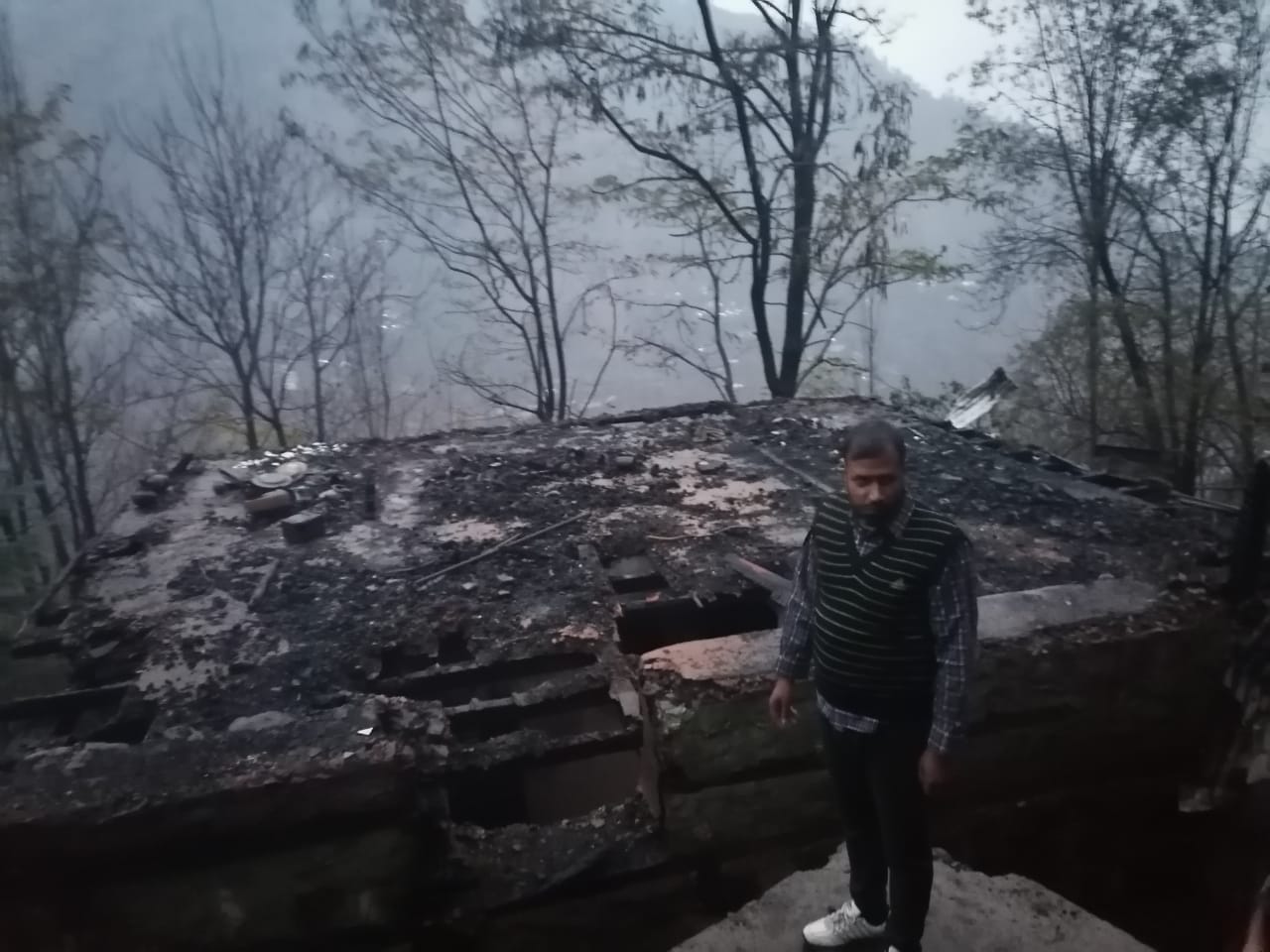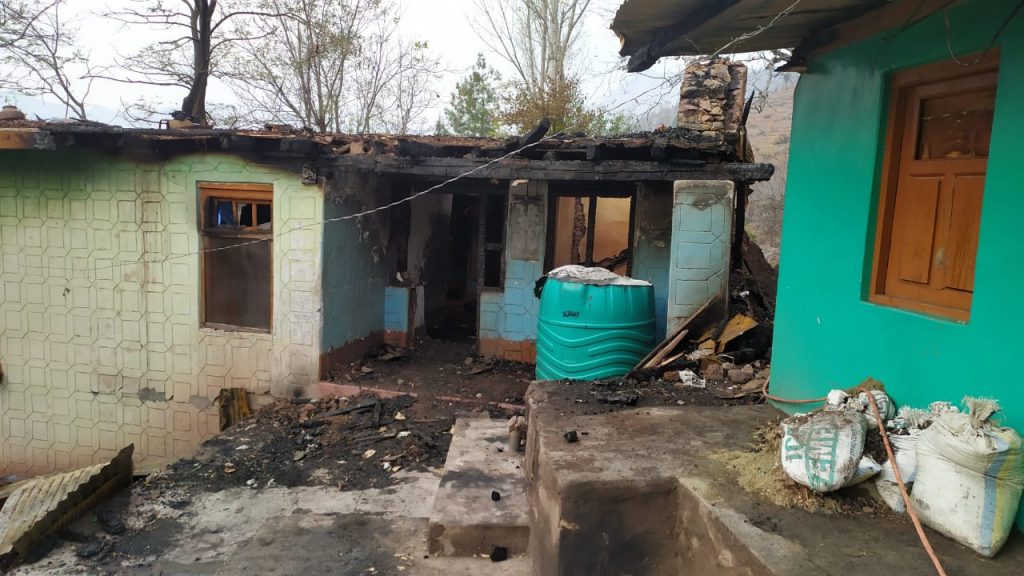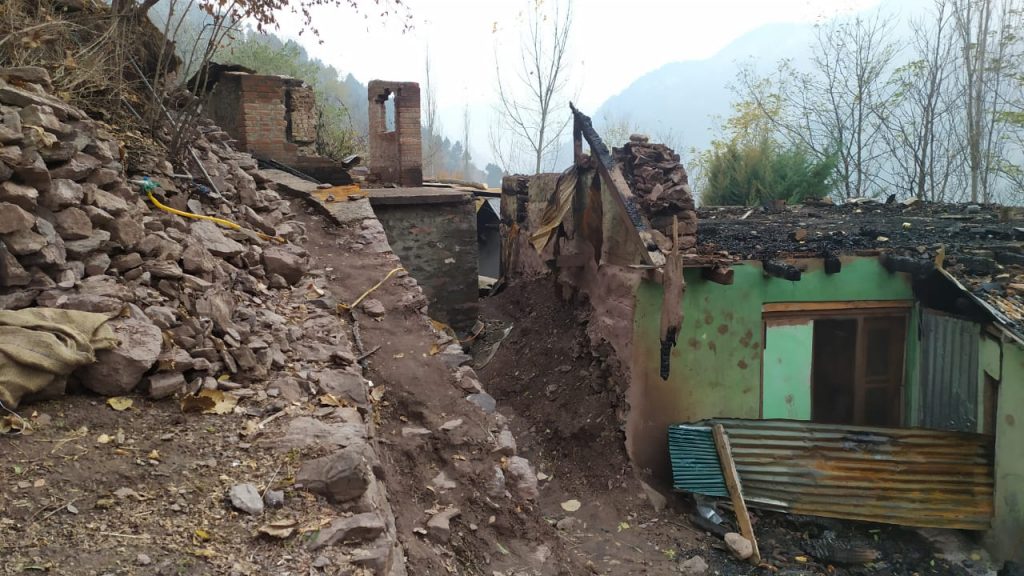“We are worst victims of cross-border shelling,” LOC residents express mixed feelings on latest Indo-Pak ceasefire agreement

On February 25, the two nuclear armed rivals India and Pakistan agreed for a ceasefire along the highly volatile Line of Control (LOC), that divides Kashmir between India and Pakistan. For the residents of the villages lying at LOC, the ceasefire is another new agreement between the two nations but the one they badly want both countries to maintain.
Auqib Javeed, TwoCircles.net
Srinagar: Abdul Gani Sheikh, 54, is unimpressed with the news of the latest ceasefire that was announced by India and Pakistan.
“We have witnessed many ceasefire agreements but it doesn’t stand for long,” Sheikh, who lives in Balakote village of Uri’s Haji Peer sector in North Kashmir’s Baramulla district told TwoCircles.net.
“Let’s hope the truce survives,” Sheikh maintains.
The ice was finally broken between the two nuclear-armed countries on February 25, when both the countries issued a joint statement saying they have agreed to stop firing along their disputed border in Kashmir starting the same day.
The director generals of military operations for the two countries held discussions where they reviewed the situation along the Line of Control – the de facto border between the Indian and Pakistani parts of Kashmir – in a “free, frank and cordial atmosphere,” according to the statement.

Frequent clashes and cross-border shelling along the Line of Control in recent months reportedly killed multiple civilians.
“In the interest of achieving mutually beneficial and sustainable peace along the borders, the two (director generals) agreed to address each other’s core issues and concerns which have the propensity to disturb the peace and lead to violence,” the statement read. It added that both sides will utilize existing mechanisms including a hotline to resolve tensions and misunderstandings.
Sheikh, who lost his house on November 13, 2020, in cross border shelling is still living in rented accommodation.
Bullets and shells rained all around in Kamalkote, Hajipeer and Rampore sectors of Uri, claiming at least six lives including four civilians and two forces personnel.
Around two dozen residential houses got damaged in the shelling.
The news of the latest truce is a positive development for many residents of the villages lying near the disputed Line of Control (LOC). For Sheikh and other residents whose lives have been disrupted by the frequent shelling, the development will only hold water if it’s implemented strictly on the ground. In recent times, the LOC had become a hotspot with frequent shelling between the two rival nations.
Sheikh refers to the already existing ceasefire between India and Pakistan and says, “It was not implemented then. How can we hope it will be implemented now? Only time will tell.”
India and Pakistan signed a ceasefire agreement in 2003, but it has hardly been followed in letter and spirit over the past several years with a spike in violations reported in the last two years. The spike in LOC shelling was seen post-August 5, 2019 decision of the government of India to revoke the limited autonomy of the erstwhile state of Jammu and Kashmir and bifurcate the territory into two Union Territories.

The villagers of Uri maintain that they have witnessed the ceasefire agreement earlier as well but both the countries violated it frequently.
“Although, this is a good step. Let’s hope both the countries remain intact on their agreements,” Sheikh laments.
Notably, the ceasefire violations remained all-time high in the year 2020.
According to reports, a total of 10,752 cases of ceasefire violations have taken place along India's border with Pakistan in the last three years, in which 72 security personnel and 70 civilians were killed.
“We are the worst sufferers of the frontier confrontation,” said Firdous Ahmad from Panzgam village of North Kashmir’s Kupwara district.
Ahmad says they want the government to resolve all the issues through talks and spare them from this torment.
Abdul Rashid, a resident of Dawar in border Bandipora district said that since the 2003 ceasefire agreement, they witnessed occasional cross border shelling and sometimes the shelling was destructive.
“I hope this is not a case this time. If there is a ceasefire between the two countries it should stay intact,” Rashid said.
The United Nations and the United States welcomed India and Pakistan’s decision to a ceasefire along the Line of Control (LoC).
While the US called it a “positive step” towards greater peace and stability in South Asia, the UN said that Secretary-General Antonio Guterres is encouraged by their decision to strictly observe all agreements on a ceasefire along the Line of Control (LoC) and hopes that the “positive step” would “provide an opportunity for further dialogue”.
For the residents of the villages who have been on the line of fire, the agreement will only make sense if their lives and properties remain safe in the coming years.
“We have suffered so much in the past due to cross-border shelling. We really hope the agreement stands, but we have mixed feelings (based on past agreements) and can only wish and pray it stands,” Sheikh said.
